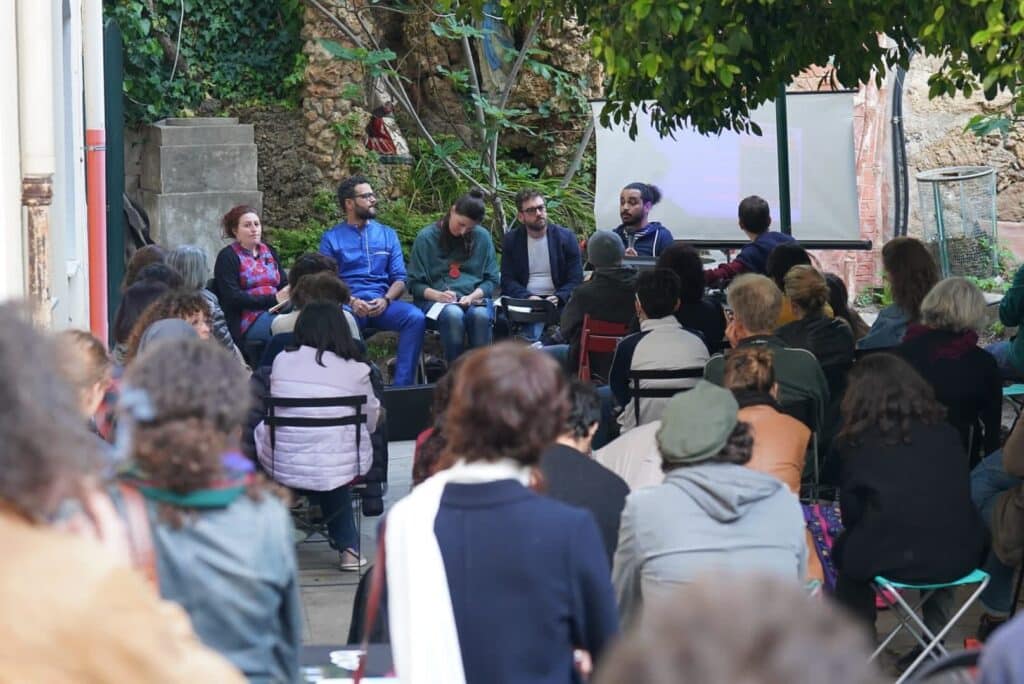
In 2018, ASF decided to create a regional hub in the Euro-Mediterranean region, based in Tunis, with the aim of pooling resources and strengthening and harmonising its action in the region. The innovative aspect of the regional office is to fully assume the historical, economic, political and cultural links that exist between the two shores of the Mediterranean, and to take them into account in order to put in place action at regional level that is coherent and efficient.
Avocats Sans Frontières’ Euro-Mediterranean regional office was set up in 2020 as part of a decentralisation and regionalisation process that also led to the creation of a regional office in East Africa. Since its launch, the region has been confronted with numerous crises: a pandemic, an authoritarian turnaround in Tunisia, war in Ukraine, a new flare-up in the Israeli-Palestinian conflict, social and economic crises, ….
2023 was an opportunity for the regional office to take stock, consolidate its structure and identify the key strategic directions for the next 5 years.
A challenging and constantly changing environment
In the north and south of the Mediterranean, civil society is operating in a context of shrinking civic space and reduced freedom of expression, making its calls for more democracy and greater respect for human rights and the rule of law less and less audible. The coup de force carried out by the President of the Republic of Tunisia in July 2021 has put a stop to hopes of democratisation on the southern shores of the Mediterranean, while the rise of populism in the North is calling into question the paradigm of human rights and the rule of law.
The security and xenophobic policies that several members of the European Union have adopted on migration issues, as well as the reaction of European governments to the massacres in Gaza, including by restricting the freedom of expression and demonstration of its citizens, have further fuelled the mistrust of the populations of North Africa (and even the Global South) towards them. The old continent’s reputation and credibility abroad are at half-mast, because of the gap between its words and its deeds. While the European Union and its Member States continue to present themselves as the guarantors of democratic values, they are at the same time supporting authoritarian regimes to externalise policies to control migratory movements in defiance of international law. The founding values of the European Union and its institutions are jeopardised if, within the Union itself, civil society is repressed and judicial decisions are not respected by the authorities when they oppose the policies it pursues. The European Union preaches values that it no longer embodies, which it instrumentalises to suit its geopolitical objectives.
This renunciation of its values is fuelling anti-democratic movements in Europe and damaging the credibility of defenders of human rights and the rule of law both north and south of the Mediterranean.
It is these multiple crises and challenges that have guided ASF’s strategic thinking for the Euro-Mediterranean region. The regional office wants to contribute to a change of narrative by proposing a vision of the Euro-Mediterranean region as an area of interdependence, united by centuries of history, cultural mixing and economic exchanges. We cannot combat the resurgence of identity-based nationalism without rediscovering this proximity and awareness of this common space.
With this long-term objective in mind, civil society must take action every day to confront the human rights violations resulting from the identity politics of the powers that be in the region.
The TACKLE projet
With these thoughts in mind, ASF designed and launched ‘TACKLE – Promoting the emergence of a new generation of equality advocates’, a vast project implemented in five countries in the northern Mediterranean (Italy, France, Spain, Belgium and the Netherlands) and two in the southern Mediterranean (Tunisia and Morocco), with the aim of empowering young people in the fight against racism and xenophobia. For ASF, there is an intrinsic link between the colonial past, xenophobia and migration policy. If we want to reverse the narrative that accompanies current migration policies, we need to tackle their root causes.
Strengthening the sense of belonging to a common space also means abandoning the colonial prism that shapes North-South relations and identifying common trends and struggles that unite the oppressed on both shores.
The campaign to decriminalise poverty, status and activism
The campaign for the decriminalisation of poverty, status and activism is in itself a step beyond this. This campaign, which ASF is leading with many other civil society organisations around the world, is fighting against restrictions on the right to peaceful protest, the criminalisation of environmental movements, homophobic or misogynist attacks, facial recognition offences, etc. Attacks on the rights of individuals that affect both sides of the Mediterranean. Attacks on the rights of individuals that affect both sides of the Mediterranean. In 2023, ASF has decided to become even more involved in the campaign by joining the Francophone Group’s Coordination Committee.



